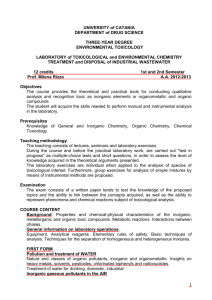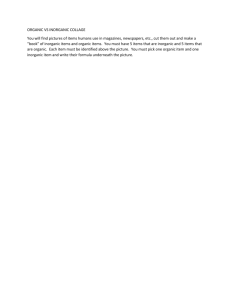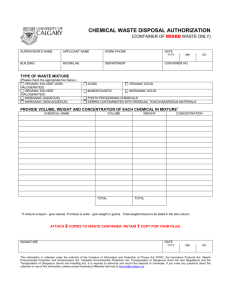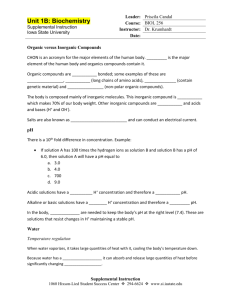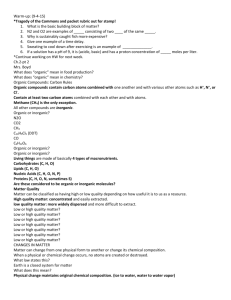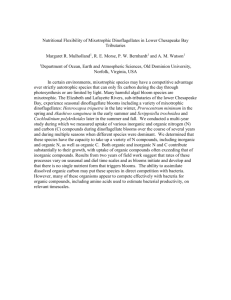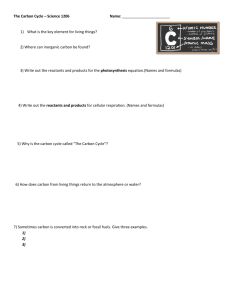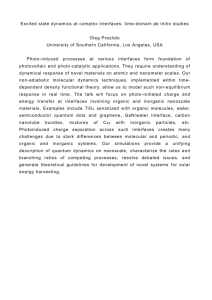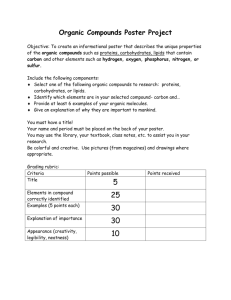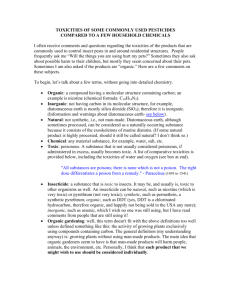UNIVERSITY of CATANIA DEPARTMENT of DRUG SCIENCE
advertisement
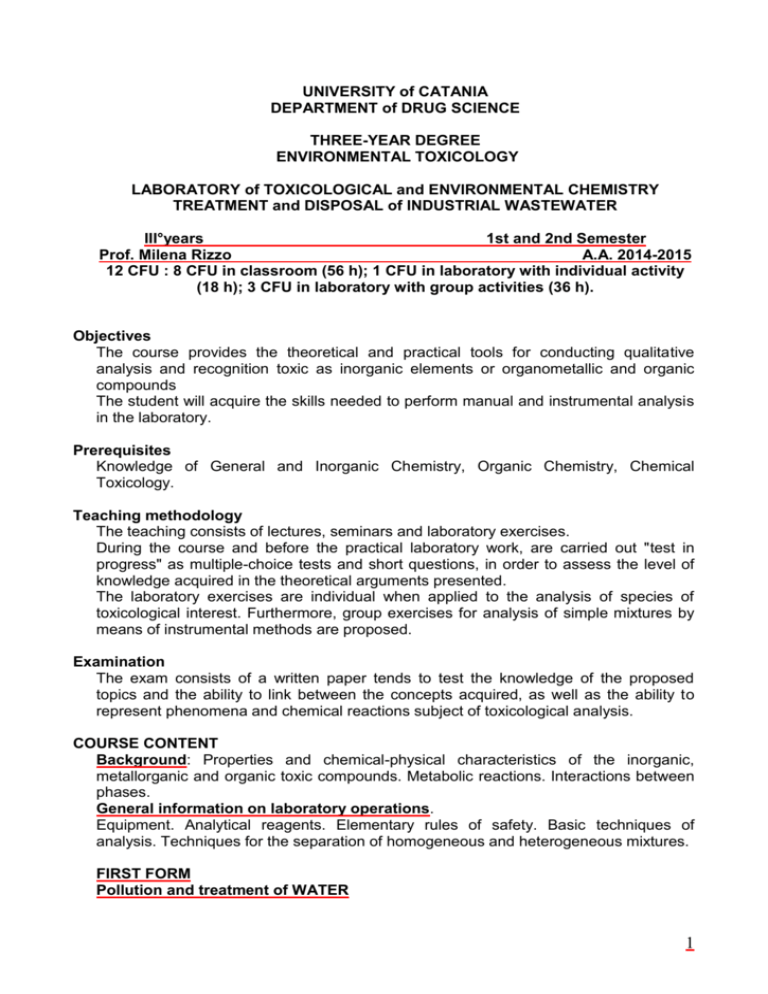
UNIVERSITY of CATANIA DEPARTMENT of DRUG SCIENCE THREE-YEAR DEGREE ENVIRONMENTAL TOXICOLOGY LABORATORY of TOXICOLOGICAL and ENVIRONMENTAL CHEMISTRY TREATMENT and DISPOSAL of INDUSTRIAL WASTEWATER III°years 1st and 2nd Semester Prof. Milena Rizzo A.A. 2014-2015 12 CFU : 8 CFU in classroom (56 h); 1 CFU in laboratory with individual activity (18 h); 3 CFU in laboratory with group activities (36 h). Objectives The course provides the theoretical and practical tools for conducting qualitative analysis and recognition toxic as inorganic elements or organometallic and organic compounds The student will acquire the skills needed to perform manual and instrumental analysis in the laboratory. Prerequisites Knowledge of General and Inorganic Chemistry, Organic Chemistry, Chemical Toxicology. Teaching methodology The teaching consists of lectures, seminars and laboratory exercises. During the course and before the practical laboratory work, are carried out "test in progress" as multiple-choice tests and short questions, in order to assess the level of knowledge acquired in the theoretical arguments presented. The laboratory exercises are individual when applied to the analysis of species of toxicological interest. Furthermore, group exercises for analysis of simple mixtures by means of instrumental methods are proposed. Examination The exam consists of a written paper tends to test the knowledge of the proposed topics and the ability to link between the concepts acquired, as well as the ability to represent phenomena and chemical reactions subject of toxicological analysis. COURSE CONTENT Background: Properties and chemical-physical characteristics of the inorganic, metallorganic and organic toxic compounds. Metabolic reactions. Interactions between phases. General information on laboratory operations. Equipment. Analytical reagents. Elementary rules of safety. Basic techniques of analysis. Techniques for the separation of homogeneous and heterogeneous mixtures. FIRST FORM Pollution and treatment of WATER 1 Nature and classes of organic pollutants, inorganic and organometallic. Insights on heavy metals, solvents, pesticides, chlorinated biphenyls and radionuclides. Treatment of water for drinking, domestic, industrial Inorganic gaseous pollutants in the AIR Production and control of carbon monoxide. The sulfur cycle. Insights on: sulphides, ammonia; fluorine, chlorine and their gaseous compounds. Organic pollutants in the ATMOSPHERE Aromatic hydrocarbons. Aldehydes and ketones. Organic compounds: halogenated, sulfur, nitrogen SECOND FORM Nature and sources of hazardous waste. Hazardous waste in the geosphere, hydrosphere, atmosphere and biosphere. Classification of substances: flammable, combustible, reactive, corrosive, toxic. Origin, production, transport and fate of hazardous waste. Particular consideration of chemical products responsible of toxic effects on Environment and on Health of living beings. Reduction, treatment and disposal of hazardous waste Physical methods. Chemical methods. Recycling. Photo-lithic reactions. Heat treatment. Biodegradation. Composting. Leachate and gas emissions. THIRTH FORM Environmental Chemical Analysis Sampling. Analysis of water samples. Atmospheric monitoring: oxidants, hydrocarbons and particulates. Oxides of carbon, sulfur and nitrogen. Instrumental methods of analysis Classical methods. Official methods. Classification of methods. Validation of analytical methods. -Optical Methods: Theoretical principles and generality of Flame Photometry, UVVisible Spectroscopy and Atomic Absorption Spectroscopy. -Chromatographic Methods: Theoretical principles, and general classification. Thin layer chromatography (TLC) and column (HPLC). Ion exchange chromatography (IEC). -Electrochemical methods. Suggested Readings S.E. Manahan “Chimica dell’Ambiente” Piccin M. Ischia La chimica organica in laboratorio I° e II° vol. Piccin I. P. C. S. “Basic Analytical Toxicology”. Pubblished by WHO and United Nations Enviromental Programme and International Labour Organisation. Bauer-Christian- O'Reilly “Analisi Strumentale” Piccin “Metodiche APAT” Web-sites suggested by the teacher. Office hours: Monday from 12:00 to 14:00, Thursday from 9:00 to 11:00, by appointment. 2
